Progarchives.com has always (since 2002) relied on banners ads to cover web hosting fees and all.
Please consider supporting us by giving monthly PayPal donations and help keep PA fast-loading and ad-free forever.
/PAlogo_v2.gif) |
|
Post Reply 
|
Page 123 7> |
| Author | ||||
HackettFan 
Forum Senior Member 
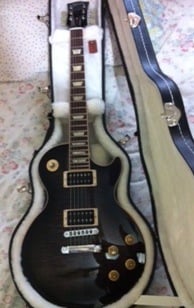
Joined: June 20 2012 Location: Oklahoma Status: Offline Points: 7946 |
 Topic: S.Wilson: "Rap now is more innovative than Rock" Topic: S.Wilson: "Rap now is more innovative than Rock"Posted: October 06 2017 at 22:47 |
|||
 Innovative Jazz incorporating occasional Hip Hop elements, not the other way around. I'll have to listen to the others. Innovative Jazz incorporating occasional Hip Hop elements, not the other way around. I'll have to listen to the others.
|
||||
|
A curse upon the heads of those who seek their fortunes in a lie. The truth is always waiting when there's nothing left to try. - Colin Henson, Jade Warrior (Now)
|
||||
 |
||||
HackettFan 
Forum Senior Member 

Joined: June 20 2012 Location: Oklahoma Status: Offline Points: 7946 |
 Posted: October 06 2017 at 22:30 Posted: October 06 2017 at 22:30 |
|||
All the rest of the sociological stuff and price of equipment is irrelevant (for the question we're examining here). That's sociology and history, not music. Who can make music (answer: me) or where music is made is irrelevant. Nothing in any recording reveals its recording location. By irrelevant, I don't mean historically insignificant, because technological/sociological changes may as you say result in (without being a part of) paradigm shifts in how music can be made. So, fine. What was the paradigm shift? If sampling existed before, justifying a paradigm shift is kind of hard, though I would allow that there might be something revolutionary that I'm unaware of. A paradigm is a whole theoretical approach normally contrasted with another whole theoretical approach that differs from top to bottom. How do we have that here? This may be a higher standard than I think you need to make. I think small low level innovations are highly admirable. However, as to the question of whether Hip Hop is more innovative than Prog, let me point out that much of what you say about technology and sociology of *how* and *who* can do whatever applies equally to Prog. The advances in guitar-related technology are staggering. I myself am a modest contributor to a Kickstarter campaign for Paul Vo, who is developing an energy bow-like device that can impart a vibration to a string in synthesized wave form that is digitally defined by whatever software is downloaded to it. It works on acoustic guitars too. It is Acoustic Synthesis, and that is indeed a technological paradigm shift. |
||||
|
A curse upon the heads of those who seek their fortunes in a lie. The truth is always waiting when there's nothing left to try. - Colin Henson, Jade Warrior (Now)
|
||||
 |
||||
HackettFan 
Forum Senior Member 

Joined: June 20 2012 Location: Oklahoma Status: Offline Points: 7946 |
 Posted: October 06 2017 at 20:32 Posted: October 06 2017 at 20:32 |
|||
|
||||
|
A curse upon the heads of those who seek their fortunes in a lie. The truth is always waiting when there's nothing left to try. - Colin Henson, Jade Warrior (Now)
|
||||
 |
||||
King of Loss 
Prog Reviewer 
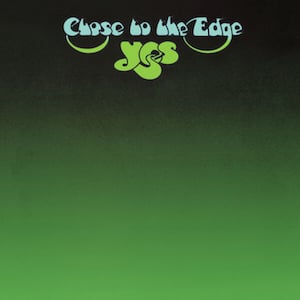
Joined: April 21 2005 Location: Boston, MA Status: Offline Points: 16328 |
 Posted: October 06 2017 at 14:49 Posted: October 06 2017 at 14:49 |
|||
|
Ulking is better than Steven Wilson these days!!!!
 
|
||||
 |
||||
miamiscot 
Forum Senior Member 
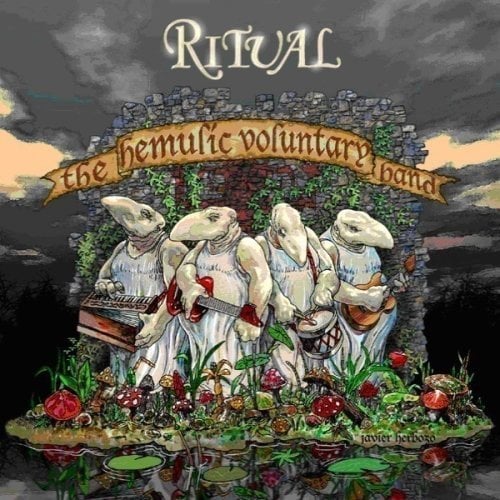
Joined: April 23 2014 Location: Ohio Status: Offline Points: 3418 |
 Posted: October 05 2017 at 09:26 Posted: October 05 2017 at 09:26 |
|||
|
As much as I love his music, his mouth sure says a lot of dumb things.
|
||||
 |
||||
jude111 
Forum Senior Member 
Joined: October 20 2009 Location: Not Here Status: Offline Points: 1725 |
 Posted: October 02 2017 at 12:13 Posted: October 02 2017 at 12:13 |
|||
Innovation is related to invention; to technological developments, to change.
In the 1950s in France, newer, cheaper, smaller cameras entered the market that became accessible to many people who otherwise wouldn't have been able to make films. Young people started to make their own movies, going out in the streets with their small cameras, bypassing the stranglehold the studio system had over film production. France only used to make a few dozen movies a year; suddenly in 1960, hundreds were being made, outside of the studio system, launching the French New Wave. The new technology, in other words, changed the production of films, and brought in new ways of doing things (including new film techniques). You said sampling's not new. (I said the same thing; re-read my post.) However, what's changed is the same thing that changed in the example of French filmmaking that I gave above: New, cheaper, smaller computers entered the market, with more capabilities. Young people started to make their own music, from their bedrooms, using new technologies heretofore nonexistent or unavailable to them. These technological changes resulted in paradigm shifts in how music can be made, and who can make it. Sampling is not new; but *how* you sample, and *who* can sample, is new. Now, anyone can sample, from their bedroom, or office, or anywhere; in fact, one producer (Floating Points) recently made an album during a flight. What does this mean? It means anyone can be a producer. *Anyone*. From your bedroom. That's the shift I was talking bout. You don't have to be born with a name like Brian Peter George St John le Baptiste de la Salle Eno (aka "Brian Eno") to become one.  Edited by jude111 - October 02 2017 at 12:17 |
||||
 |
||||
Guldbamsen 
Special Collaborator 

Retired Admin Joined: January 22 2009 Location: Magic Theatre Status: Offline Points: 23098 |
 Posted: October 02 2017 at 11:37 Posted: October 02 2017 at 11:37 |
|||
 Yeah I know. I actually thought about mentioning the whole graffiti and breakdance environment but decided not to...this is after all a pork forum and we like our chops. |
||||
|
“The Guide says there is an art to flying or rather a knack. The knack lies in learning how to throw yourself at the ground and miss.”
- Douglas Adams |
||||
 |
||||
jude111 
Forum Senior Member 
Joined: October 20 2009 Location: Not Here Status: Offline Points: 1725 |
 Posted: October 02 2017 at 11:31 Posted: October 02 2017 at 11:31 |
|||
But you're using a very narrow frame to describe hip-hop too  - music is only a part of it; it also includes graffiti and art, dancing, fashion, and other things. - music is only a part of it; it also includes graffiti and art, dancing, fashion, and other things.From Wikipedia: `Hip hop or hip-hop is a subculture and art movement developed in South Bronx in New York City during the late 1970s.[1][2][3][4][5] While people unfamiliar with hip hop culture often use the expression "hip hop" to refer exclusively to hip hop music (also called "rap"),[6] Hip hop is characterized by nine distinct elements or expressive realms, of which hip hop music is only four elements (rapping, djaying, beatboxing and breaking). Afrika Bambaataa of the hip hop collective Zulu Nation outlined the pillars of hip hop culture, coining the terms: "rapping" (also called MCing or emceeing), a rhythmic vocal rhyming style (orality); DJing (and turntablism), which is making music with record players and DJ mixers (aural/sound and music creation); b-boying/b-girling/breakdancing (movement/dance); and graffiti art, which he called "aerosol writin'", although many say that the graffiti that hip hop adopted had been around years earlier, and had nothing to do with hip hop culture. (visual art).[7][8][9][10][11] Other elements of hip hop subculture and arts movements beyond the main four are: hip hop culture and historical knowledge of the movement (intellectual/philosophical); beatboxing, a percussive vocal style; street entrepreneurship; hip hop language; and hip hop fashion and style, among others.'
|
||||
 |
||||
Guldbamsen 
Special Collaborator 

Retired Admin Joined: January 22 2009 Location: Magic Theatre Status: Offline Points: 23098 |
 Posted: October 02 2017 at 08:58 Posted: October 02 2017 at 08:58 |
|||
|
Just thought of another one fit for this thread - one that is included in our archives no less: Elephant Tok's debut from last year. Again not a RAP album but rather an avant rock album with rap vocals at the helm.
|
||||
|
“The Guide says there is an art to flying or rather a knack. The knack lies in learning how to throw yourself at the ground and miss.”
- Douglas Adams |
||||
 |
||||
Mascodagama 
Collaborator 
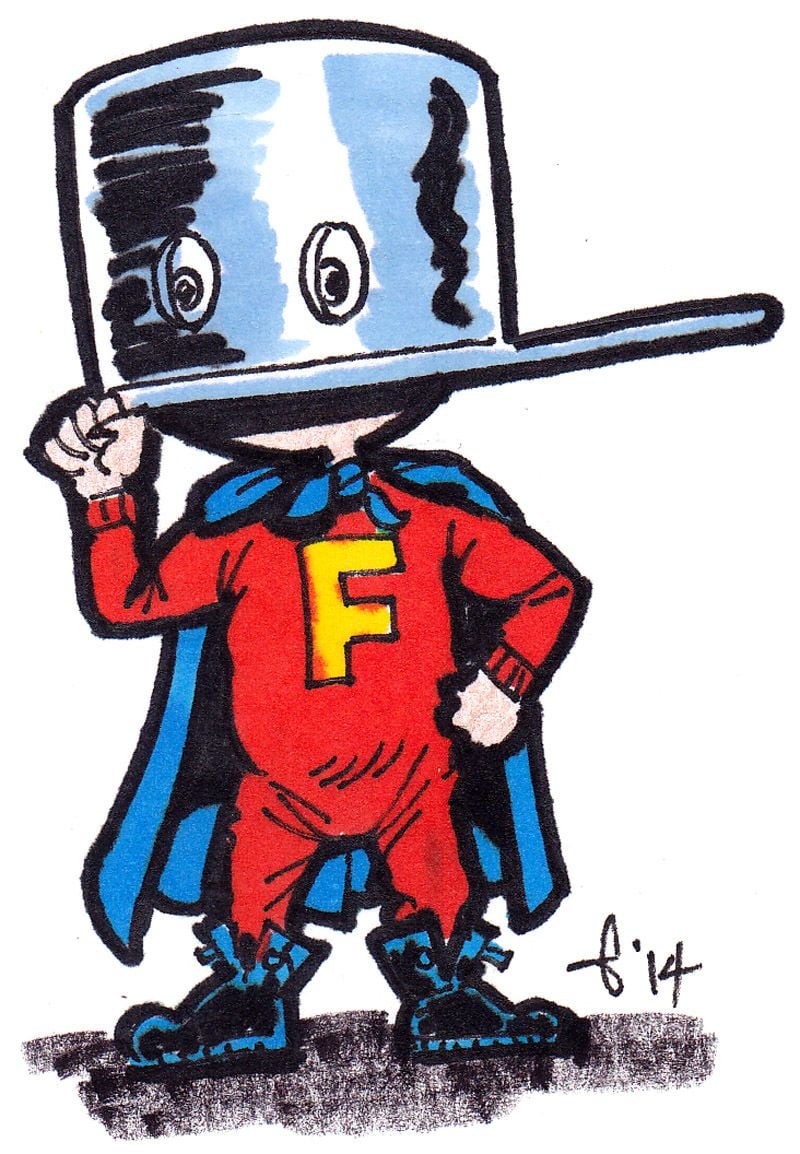
Honorary Collaborator Joined: December 30 2006 Location: United Kingdom Status: Offline Points: 5111 |
 Posted: October 02 2017 at 08:46 Posted: October 02 2017 at 08:46 |
|||
|
And here's some cross-pollination between rap and the genuine jazz avant-garde:
Edited by Mascodagama - October 02 2017 at 08:47 |
||||
|
Soldato of the Pan Head Mafia. We'll make you an offer you can't listen to.
Bandcamp Profile |
||||
 |
||||
Mascodagama 
Collaborator 

Honorary Collaborator Joined: December 30 2006 Location: United Kingdom Status: Offline Points: 5111 |
 Posted: October 02 2017 at 08:25 Posted: October 02 2017 at 08:25 |
|||
|
Far from being hip-hop, but here's a magnificently creative (and progressive...) piece of music that includes rapping:
Edited by Mascodagama - October 02 2017 at 08:26 |
||||
|
Soldato of the Pan Head Mafia. We'll make you an offer you can't listen to.
Bandcamp Profile |
||||
 |
||||
Guldbamsen 
Special Collaborator 

Retired Admin Joined: January 22 2009 Location: Magic Theatre Status: Offline Points: 23098 |
 Posted: October 02 2017 at 08:10 Posted: October 02 2017 at 08:10 |
|||
|
I think you're using a very very narrow frame to describe rap and/or hip hop. Rap is rap regardless of what kind of music playing in the background. Rap is and has always been a vocal delivery rather than a genre like hip hop. Rap is still rap when the music is jazz funk or polka. Rage Against The Machine is rap fx.
Just like hip hop is hip hop when it is spliced together with rock/metal/jazz or is free from samples or uses acapella style vocals. |
||||
|
“The Guide says there is an art to flying or rather a knack. The knack lies in learning how to throw yourself at the ground and miss.”
- Douglas Adams |
||||
 |
||||
Cristi 
Special Collaborator 
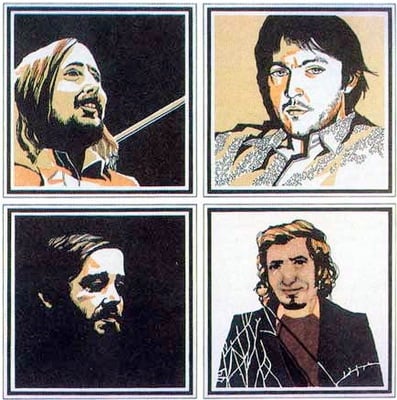
Crossover / Prog Metal Teams Joined: July 27 2006 Location: wonderland Status: Online Points: 41264 |
 Posted: October 02 2017 at 08:02 Posted: October 02 2017 at 08:02 |
|||
again, jazz-funk I do listen to some rap style vocals but it's usually with combined with rock, metal, djent, to name a few, all interesting if you ask me.
|
||||
 |
||||
Cristi 
Special Collaborator 

Crossover / Prog Metal Teams Joined: July 27 2006 Location: wonderland Status: Online Points: 41264 |
 Posted: October 02 2017 at 07:59 Posted: October 02 2017 at 07:59 |
|||
this is not rap it's funk, maybe even jazz-funk, which I do listen to. Edited by Cristi - October 02 2017 at 07:59 |
||||
 |
||||
Kingsnake 
Forum Senior Member 
Joined: November 03 2006 Location: Rockpommelland Status: Offline Points: 1578 |
 Posted: October 02 2017 at 05:00 Posted: October 02 2017 at 05:00 |
|||
|
Here some Brooklyn Funk Essentials, mixing Kurdish folk music, rap, funk, fusion, dancehall and having a lot of fun.
|
||||
 |
||||
Kingsnake 
Forum Senior Member 
Joined: November 03 2006 Location: Rockpommelland Status: Offline Points: 1578 |
 Posted: October 02 2017 at 04:57 Posted: October 02 2017 at 04:57 |
|||
|
Brooklyn Funk Essentials are world famous for mixing rap, soul, funk, dancehall and jazz.
If this isn't innovative, I don't what is. I love the energie of Swedish raggamuffin star Papa Dee. |
||||
 |
||||
Kingsnake 
Forum Senior Member 
Joined: November 03 2006 Location: Rockpommelland Status: Offline Points: 1578 |
 Posted: October 02 2017 at 04:51 Posted: October 02 2017 at 04:51 |
|||
|
Here's some more RH Factor (wich is lead by the great trumpeteer Roy Hargrove). Note that they have two drummers, some stellar slap-bass. This is a jam, most rockbands don't do anymore. And that's what Steven Wilson meant, I guess.
Edited by Kingsnake - October 02 2017 at 04:53 |
||||
 |
||||
Kingsnake 
Forum Senior Member 
Joined: November 03 2006 Location: Rockpommelland Status: Offline Points: 1578 |
 Posted: October 02 2017 at 04:34 Posted: October 02 2017 at 04:34 |
|||
|
Not so much rap, but one of the big moments in electrofunk and turntablism (another musical innovation):
|
||||
 |
||||
Kingsnake 
Forum Senior Member 
Joined: November 03 2006 Location: Rockpommelland Status: Offline Points: 1578 |
 Posted: October 02 2017 at 04:33 Posted: October 02 2017 at 04:33 |
|||
|
The great and talented Guru with the great and talented Donald Byrd on the horn.
|
||||
 |
||||
Kingsnake 
Forum Senior Member 
Joined: November 03 2006 Location: Rockpommelland Status: Offline Points: 1578 |
 Posted: October 02 2017 at 04:31 Posted: October 02 2017 at 04:31 |
|||
|
Erik Truffaz, world famous trumpet player, mixes jazzfusion, drum&bass and rap:
|
||||
 |
||||
Post Reply 
|
Page 123 7> |
| Forum Jump | Forum Permissions  You cannot post new topics in this forum You cannot reply to topics in this forum You cannot delete your posts in this forum You cannot edit your posts in this forum You cannot create polls in this forum You cannot vote in polls in this forum |